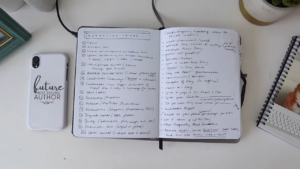Choosing a genre for your book is an important decision that affects a lot. It sets the framework for your story and how readers will view it. This can impact whether it’s successful commercially.
Don’t stress – we’ll figure out the best fit.
Just Follow Your Interests

The most important thing is writing what interests you. Think about what type of stories you enjoy reading – mysteries, sci-fi, romance, etc. Chances are you’ll have more enthusiasm for writing similar genres.
Consider what kind of themes inspire your own story ideas. Do you gravitate towards certain topics over others? Pay attention to those signals.
Also, look at your natural writing style. Is it fast-paced? Descriptive? Dialogue-heavy? Certain styles may mesh better with Thriller vs Literary Fiction, for example.
Don’t over-complicate the decision. Go with whatever genres get your creative juices flowing most. Familiarity from being a fan can also help you craft a more nuanced story.
Bottom line – follow your passions.
Research Market Trends

It’s important to know what genres and topics readers are engaged with currently. Do some research into popular and best-selling titles in your field. See what works are trending and who the up-and-coming authors are. This gives you a sense of what’s connecting with audiences.
Follow publishing industry sites, podcasts, etc. to stay updated on market demands and changes in readerships. Know what styles or topics are in high demand by the market. This type of research helps ensure your work has viable commercial prospects.
Join online writer forums to take the pulse of active readers. Ask what they most enjoy and see request. Get real-time feedback on your concepts or ideas before committing to a full draft. Emerging niches and voices within communities are worth considering.
Don’t Be Afraid to Experiment
Don’t stress over strides before trying – joy breeds smoother lays. Dip toes diverse pools; short scenes reveal genres without a long dive. This relaxes, bids play not work. And changing tides may call for re-learning craft’s new ways to adapt and stay fresh.
Share snippets sprouted, hear which bloom folk cherish most. Immediate echo guides refinement is sure as steady hand. Such feedback seeds to test concepts’ fruits before full growth spends a large labor.
Each new land widens skills’ garden. Versing diverse tales trains flexible gifts to serve changing times and tastes well. Such bounty benefits all works after, as variability enhances every pen gift.
Consider Cross-Genre

Crossing genres can create compelling, unique stories. Look for natural connection points between two worlds – for example, integrating romance into fantasy or adding sci-fi elements to a thriller. Finding balanced combinations can enrich the narrative.
Make sure no one style overpowers the other. Keep things cohesive so readers aren’t confused jumping between genres. Blending elements seamlessly enhance the story versus conflicting tones.
Consider fans of individual genres too. Fantasy readers expect rich world-building alongside mystery fans’ desire for clues and suspenseful resolutions. Respecting these tastes keeps audiences engaged across genres.
In summary
The genre you choose sets the foundation for your book. It orients readers about the type of story they’ll get. This first impression shapes how your work is initially perceived.
Consider genres as “lenses” – they affect how an audience views and processes your narrative world. Matching the genre to your strengths keeps readers engaged through that lens.
I’m Anastasia, and I’ve just wrapped up my postgraduate studies in literature. I absolutely love writing books. It’s my way of weaving new worlds and breathing life into the characters that keep me up at night. Literature isn’t just a field of study for me; it’s a canvas where I paint with words. Through my writing, I hope to connect with others who share my love for storytelling and to contribute something meaningful to the literary world.
Related Posts:
- What Is A Nonlinear Plot? Everything You Need To Know
- Restorative Narratives: Defining a New Strength-Based Genre
- What Is Contemporary Romance Genre? Swoon-Worthy Stories
- What Is a Secondary Character - How Do You Use It?
- 16 Ways to Describe Emotions Without Making Your…
- A Step-By-Step Guide to Writing Your First Novel -…








